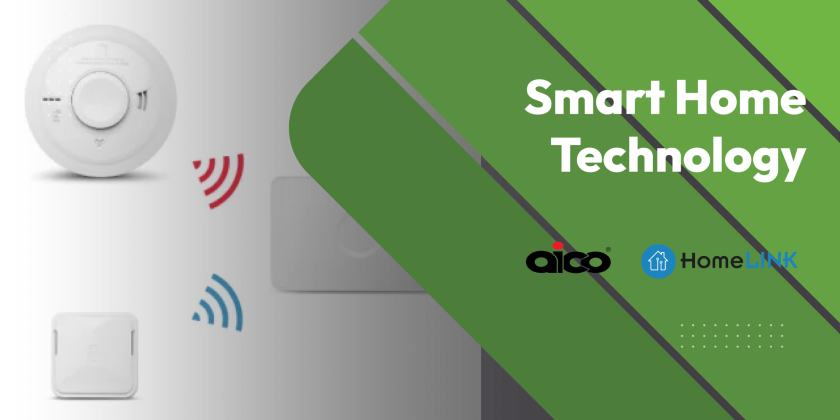In the quest for sustainable living and reducing energy bills, more and more UK households are turning to solar power as a viable solution. With the demand for green energy on the rise, understanding which solar panels offer the best efficiency is crucial for making an informed decision. Different types of solar panels vary in their efficiency, performance, and suitability for the often cloudy British weather. This guide will delve into the most efficient solar panels available in the UK market, providing you with the knowledge needed to harness the sun’s energy effectively. Join us as we explore the top contenders that promise maximum efficiency and long-term savings for your home.
Understanding Solar Panel Efficiency
What is Solar Panel Efficiency?
Solar panel efficiency refers to the ability of a solar panel to convert sunlight into usable electricity. It is expressed as a percentage, indicating how much of the sunlight that hits the panel is converted into electrical power. For instance, a solar panel with 20% efficiency converts 20% of the sunlight it receives into electricity, while the remaining 80% is lost, usually as heat. Higher efficiency panels can generate more electricity from the same amount of sunlight, making them ideal in areas with limited roof space or less sunlight exposure. However, efficiency is only one factor to consider; cost, durability, and performance in varied weather conditions also play crucial roles. In the UK, where cloudy skies are common, understanding efficiency helps homeowners choose panels that maximise energy production despite the weather challenges.
Factors Affecting Efficiency
Several factors influence the efficiency of solar panels. Firstly, the type of solar cell technology used plays a significant role. Monocrystalline panels, known for their high efficiency, are often more effective than polycrystalline ones. Secondly, the quality of materials and manufacturing processes can impact performance. High-quality panels tend to maintain their efficiency over a longer period. Thirdly, environmental conditions, such as temperature and shading, can affect how well panels perform. Solar panels are generally more efficient in cooler temperatures and can lose efficiency in extreme heat. Shading from trees, buildings, or even dust accumulation can significantly reduce output. Additionally, the angle and orientation of the panels relative to the sun, which varies with location and time of year, can influence efficiency. In the UK, optimising these factors helps homeowners make the most of their solar investment, ensuring that panels operate efficiently throughout their lifespan.
Importance of Efficiency in the UK
In the UK, where sunshine can be limited by frequent cloud cover, the efficiency of solar panels is particularly important. Homeowners need panels that can generate sufficient electricity even in less-than-ideal weather conditions. High-efficiency panels are more capable of converting available sunlight into electricity, making them a smart choice for maximising energy production. This is crucial for those looking to reduce their reliance on the grid and minimise energy bills. Additionally, with many UK homes having limited roof space, efficient panels allow for greater energy output without needing extensive installations. This efficiency leads to better energy yield, potentially offering quicker returns on investment. Furthermore, using efficient panels contributes to meeting personal and national renewable energy targets, supporting the transition to a lower-carbon economy. By selecting panels with higher efficiency, UK homeowners can ensure their solar systems are robust and effective, even during the gloomier months.
Top Solar Panel Brands
Leading Manufacturers in the UK
Several leading manufacturers dominate the UK solar panel market, known for their quality and efficiency. Among them, LG and Panasonic are renowned globally, offering high-efficiency monocrystalline panels that are ideal for the UK’s variable weather. Another top player is SunPower, which provides panels with some of the highest efficiency ratings available, making them a popular choice for those seeking reliable performance. REC Group, a Norwegian brand with a strong presence in the UK, is known for its panels’ durability and excellent energy yield. Additionally, JA Solar, a Chinese manufacturer with a competitive edge, offers cost-effective solutions without compromising on quality. These brands are distinguished not only by their technological advancements but also by their commitment to sustainability and customer support. Choosing a panel from these reputable manufacturers ensures homeowners benefit from proven efficiency and robust warranties, crucial factors for long-term investment in solar energy.
Comparison of Popular Brands
When comparing popular solar panel brands in the UK, several key factors come into play: efficiency, warranty terms, and price. SunPower boasts some of the highest efficiency ratings, reaching above 22%, and offers a robust 25-year warranty, making them a premium but costly option. LG also delivers high efficiency, around 21%, with a similarly long warranty, offering a balance of performance and reliability. Panasonic’s panels are known for their excellent performance in low-light conditions, a plus for the UK’s cloudy climate, providing efficiency levels over 20%. REC Group panels are slightly more affordable, offering efficiencies around 20%, with solid warranties and excellent durability. JA Solar provides a more budget-friendly option, with efficiencies generally around 19%, but still offers reliable performance and decent warranty coverage. Ultimately, the choice depends on individual needs, whether prioritising maximum efficiency, budget, or long-term warranty support.
Key Features of Each Brand
Each leading solar panel brand offers unique features that cater to different needs. SunPower panels are renowned for their high efficiency and durability, featuring Maxeon cell technology that enhances energy retention and longevity. Their panels are designed to withstand harsh weather, which is ideal for the UK’s unpredictable climate. LG panels offer sleek designs with high efficiency and the benefit of a strong warranty. Known for their NeON series, LG focuses on producing lightweight panels with easy installation. Panasonic sets itself apart with its HIT technology, which ensures high performance even in low-light conditions. This makes them particularly effective during the UK’s frequent overcast days. REC Group panels combine robust construction with high energy yield, offering a balance of power and affordability. JA Solar panels are valued for their cost-effectiveness, providing reliable performance at a lower price point, making them accessible for budget-conscious consumers. Each brand, therefore, provides distinct advantages tailored to various priorities and budgets.
Installation and Maintenance
Choosing the Right Installer
Selecting the right installer for your solar panels is crucial to ensure optimal performance and longevity. Start by seeking accredited installers who are certified by relevant authorities, such as the Microgeneration Certification Scheme (MCS) in the UK. This accreditation guarantees that the installer meets industry standards for quality and safety. It’s also wise to look for reviews and testimonials from previous customers to gauge their reliability and service quality. Experienced installers will conduct a thorough assessment of your property, considering factors like roof orientation and shading, to design an efficient system tailored to your needs. Additionally, inquire about the warranties and aftercare services they offer. A trustworthy installer will provide comprehensive support, including routine maintenance checks and swift responses to any issues. Comparing quotes from multiple installers can also help you find competitive pricing without compromising on quality. Taking these steps ensures a smooth installation process and maximises your investment in solar energy.
Regular Maintenance Tips
Regular maintenance is vital for keeping your solar panels operating efficiently and prolonging their lifespan. Start by visually inspecting your panels every few months for any obvious signs of damage or debris accumulation. Leaves, bird droppings, or dust can hinder performance by blocking sunlight, so ensure panels are clean and unobstructed. Cleaning should be done carefully, ideally with water and a soft brush, to avoid scratching the surface. It’s also important to check that all electrical connections are secure and free from corrosion. Monitoring your energy output regularly can help detect any drop in performance, indicating when professional maintenance might be necessary. Additionally, schedule a professional inspection every few years to ensure the system components, such as the inverter and wiring, are functioning correctly. By adhering to these maintenance tips, you can ensure your solar panels continue to provide efficient, reliable energy for many years to come.
Cost Considerations
When installing solar panels, understanding the cost implications is crucial. Initial costs encompass the price of the panels, inverters, mounting equipment, and installation fees. While high-efficiency panels may have a steeper upfront cost, they often provide better long-term savings on energy bills. It’s also important to consider the financial incentives available, such as the Smart Export Guarantee (SEG) in the UK, which allows you to earn money by exporting surplus electricity back to the grid. Maintenance costs are generally low, but budgeting for occasional professional inspections ensures system longevity and efficiency. Additionally, factor in potential costs for repairs or replacements, particularly of the inverter, which may need replacing every 10 to 15 years. Comparing quotes from multiple installers can help secure a competitive deal. By weighing these cost considerations, you can make an informed decision that balances upfront expenditure with long-term financial and environmental benefits.
Government Incentives and Schemes
Overview of UK Incentives
The UK government offers several incentives to encourage the adoption of solar energy. One key scheme is the Smart Export Guarantee (SEG), which replaced the previous Feed-in Tariff. Under SEG, households that generate more electricity than they use can sell the surplus back to the grid, providing a financial return on their solar investment. This scheme mandates energy suppliers to pay homeowners for the energy they export, with rates varying between suppliers. Additionally, the Zero VAT rating on solar panel installations for domestic properties makes investing in solar more affordable, reducing the overall cost burden for homeowners. Moreover, local authorities may offer grants or loans to help cover installation costs. Together, these incentives make solar power a more attractive option for households, enhancing the financial viability of transitioning to renewable energy. Understanding these schemes helps homeowners maximise the economic benefits of their solar panel installations.
How to Qualify for Schemes
To qualify for government schemes like the Smart Export Guarantee (SEG) in the UK, homeowners must ensure their solar panel systems meet specific requirements. Firstly, the installation must be carried out by an installer accredited by the Microgeneration Certification Scheme (MCS). This certification guarantees that the installation adheres to industry standards. Additionally, the solar panels and associated equipment, such as inverters, must also be MCS-certified. Once installed, homeowners need to apply to an energy supplier participating in the SEG, who will determine the rates and terms of payment for surplus energy exported to the grid. It’s worthwhile to shop around as rates may vary between suppliers. For any local grants or loans, eligibility criteria can differ significantly, often based on factors like location, income level, and the property’s energy efficiency. By ensuring compliance with these criteria, homeowners can take full advantage of the financial benefits offered by these government incentives.
Benefits of Government Support
Government support for solar energy in the UK provides significant benefits that enhance both the financial and environmental appeal of solar power. Financially, schemes like the Smart Export Guarantee (SEG) offer homeowners a return on their investment by allowing them to earn money from the surplus energy they generate. This can shorten the payback period for the cost of solar panel installation, making it a more attractive option. Additionally, tax incentives like the Zero VAT rating on solar installations directly reduce the upfront costs, lowering the barrier to entry for many households. Beyond financial savings, government schemes also contribute to broader environmental goals. By encouraging more households to adopt solar power, these initiatives help reduce national carbon emissions and promote energy independence. For homeowners, this means contributing to a sustainable future while enjoying reduced energy bills. Government support thus plays a crucial role in making solar energy both accessible and appealing to UK residents.
Future of Solar Energy in the UK
Innovations in Solar Technology
Innovations in solar technology are poised to revolutionise the industry, making solar panels more efficient, affordable, and versatile. One significant advancement is in the development of bifacial solar panels, which capture sunlight on both sides, increasing energy yield without requiring additional space. Another promising innovation is the integration of perovskite materials, which have the potential to significantly boost efficiency and reduce manufacturing costs compared to traditional silicon panels. Flexible and lightweight solar panels are also gaining traction, allowing for installation on a wider variety of surfaces, including curved and mobile structures. Additionally, advancements in energy storage, such as improved battery technologies, are enhancing the ability to store solar energy for use during non-sunny periods. These technological breakthroughs are set to make solar energy more accessible and efficient, supporting the UK’s transition towards a more sustainable energy future and helping to meet increasing energy demands in a green manner.
Predicted Trends and Developments
The future of solar energy in the UK is marked by several exciting trends and developments. One key trend is the increasing integration of solar energy with smart technologies. This includes the use of Internet of Things (IoT) devices to optimise energy consumption and maximise efficiency, allowing homeowners to manage their energy use in real-time via smart meters and apps. Additionally, community solar projects are expected to grow, enabling shared solar installations for those without suitable roofs, thus expanding access to solar energy. As technology advances, the cost of solar installations is likely to continue decreasing, making solar power more accessible to a broader audience. Moreover, improvements in energy storage solutions will enhance the reliability of solar power, allowing for more consistent energy supply even during periods of low sunlight. With these trends, solar energy is set to play an increasingly vital role in the UK’s energy landscape, contributing to a sustainable and decarbonised future.
Impact on the Environment
The expansion of solar energy in the UK is set to deliver substantial environmental benefits. By reducing reliance on fossil fuels, solar power significantly lowers greenhouse gas emissions, contributing to the fight against climate change. Unlike traditional energy sources, solar panels produce clean energy without air or water pollution, making them a sustainable solution for the future. As more UK households and businesses adopt solar energy, the cumulative effect can lead to improved air quality and a reduction in the overall carbon footprint. Additionally, the shift towards solar energy reduces the strain on finite natural resources, promoting energy independence and security. Innovations in solar technology, such as recyclable and biodegradable panel components, further minimise the environmental impact of solar panel production and disposal. Overall, the increased use of solar energy supports the UK’s goals for a greener economy and helps pave the way for a more sustainable future for generations to come.


